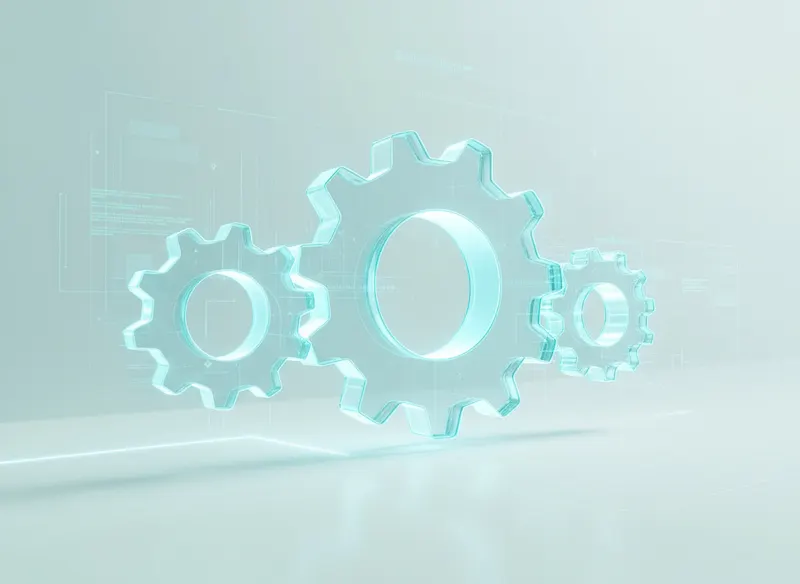Episode 14 with Nikki Rimmington : Start Small, Think Big: The Future of UK Gigafactories
Auto Futurecast is available on
In the latest Auto Futurecast episode, we sat down with Nikki Rimmington, a strategy expert from battery cell start-up Volklec, to discuss the promising future of UK gigafactories.
With her experience at Jaguar Land Rover and Aston Martin, Nikki shared valuable insights into the UK’s journey toward electrification, covering the challenges and opportunities in battery production, the importance of local supply chains, and how innovative start-ups like Volklec are carving out their space in a competitive market. Here are the key takeaways from our conversation.
What is Volklec?
Volklec is a UK-based start-up aiming to become the nation’s only independent battery cell manufacturer. Unlike larger players such as Agratas (supporting Jaguar Land Rover) and AESC (partnering with Nissan), Volklec focuses on a different market segment.
As Nikki explained, "Volklec is positioned to serve a broader set of manufacturers and industries in the UK," extending beyond automotive to other key sectors.
Who Are Volklec’s Customers?
While the automotive sector drives the highest demand for batteries, Volklec avoids directly competing with high-volume Original Equipment Manufacturers (OEMs). Instead, it serves specialized markets, including:
· High-performance, low-volume automotive: Supplying smaller car manufacturers often overlooked by large-scale battery suppliers.
· Aerospace: Addressing the growing need for drone batteries.
· Defence: Providing batteries for land and aerospace vehicles in the defence sector.
· Off-highway vehicles: Partnering with major UK brands in this space.
· Other industries: Expanding into rail, marine, medical technology, and robotics.
A Strategy of "Start Small, Think Big"
Volklec follows a pragmatic growth strategy, beginning with small-scale operations and planning for gradual expansion. By learning from the missteps of other European battery projects, the company mitigates risks tied to overly ambitious ventures.
The Importance of Strategic Partnerships
Partnerships are crucial to Volklec’s approach. Managing R&D, manufacturing, and customer acquisition simultaneously is a major challenge. As Nikki put it, "Trying to do too much at once can unravel even the best plans."
Key collaborations include:
· UK Battery Industrialisation Centre (UKBIC): Volklec uses UKBIC’s facility in Coventry to manufacture initial battery cells, helping prove its capabilities without the upfront costs of building a full-scale factory.
· Far East Battery (FEB): Partnering with an experienced Chinese battery firm allows Volklec to deliver proven, reliable technology while minimizing risk for customers.
The Challenges of Building a Gigafactory
Constructing a gigafactory involves a range of complex challenges, as Nikki highlighted.
Location Challenges
· Skilled Workforce: Gigafactories need access to a steady supply of skilled labour. Proximity to manufacturing hubs like the Midlands and North East offers an advantage.
· Energy Needs: These facilities are highly energy-intensive, requiring robust energy infrastructure and sustainable renewable energy plans.
· Community Engagement: Engaging with local communities is critical. For example, delays at Tesla’s Berlin factory stemmed from insufficient local collaboration.
Operational Challenges
· Securing Investment: Start-ups must convince investors with clear business plans, market demand, and customer validation.
· Product Specialization: Factories need to be tailored to specific battery chemistries and cell formats, but flexibility often comes with trade-offs.
· The "Valley of Death": A common hurdle for new manufacturers is bridging the gap between innovation and a market-ready product.
Developing the Battery Ecosystem
Our discussion also explored the broader battery ecosystem, including government support and the importance of recycling.
Recycling and the Circular Economy
Battery producers are increasingly responsible for their products' entire lifecycle. EU regulations now require more recycled content and better traceability, driving the need for advanced recycling infrastructure.
However, a surprising challenge has emerged: batteries are outlasting expectations, leading to fewer used batteries available for recycling. Nikki mentioned innovations like replacing individual faulty cells instead of entire modules, which could further extend battery lifespans.
Government Initiatives
The UK government has identified batteries and automotive as priority industries, providing support through investment zones, regional clusters, and funding via bodies like the Advanced Propulsion Centre (APC). These initiatives aim to foster demand, strengthen supply chains, and help start-ups overcome the "valley of death."
Nikki emphasized that demand remains the biggest challenge. While electrification is gaining momentum, the UK’s smaller market size must generate enough critical mass to attract investment and drive progress.
What Lies Ahead?
What does the future hold for the UK’s battery sector by 2030? Nikki envisions:
· Higher demand: A decisive shift to electrification across industries.
· Investor confidence: Strong backing for ambitious projects.
· A mature ecosystem: A well-developed supply chain, from raw materials to recycling infrastructure.
Stay Informed
Catch new episodes of Auto Futurecast every two weeks. Subscribe and follow us to stay updated on the latest in automotive innovation!
Guests
Discover guests from our podcast episodes.

Auto Futurecast explores the trends and technologies transforming the automotive industry. Hosted by Chris Kirby of Tomorrow’s Journey, it features industry leaders tackling key issues shaping mobility.
Explore Our Latest Insights
Stay updated with our featured articles and blogs.









